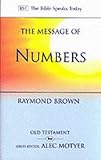
 I bought this book mainly because of the high commendation from Discerning Reader who think it may become “the most significant book of 2005”. Sider is a man with a message. His thesis is that basically evangelicals are living pretty much the same as nonchristians. The Bible calls us to a holy life but we have ignored this call to be the church and conformed to our own culture, replacing the whole gospel with cheap grace. He offers not just doctrinal correctives but some practical suggestions and ends by giving some hope that there are comitted Christians who are bucking the trend.
I bought this book mainly because of the high commendation from Discerning Reader who think it may become “the most significant book of 2005”. Sider is a man with a message. His thesis is that basically evangelicals are living pretty much the same as nonchristians. The Bible calls us to a holy life but we have ignored this call to be the church and conformed to our own culture, replacing the whole gospel with cheap grace. He offers not just doctrinal correctives but some practical suggestions and ends by giving some hope that there are comitted Christians who are bucking the trend.
The book is only 130 pages long, and so he doesn’t go into great depth on any one topic, preferring to passionately plead that we weep over the state of the church and start praying for and working towards change. While I am in broad agreement with the main message of the book, there are some issues with the way that Sider has presented it which I fear may rob it of some of its impact.
Chapter 1 (out of 5) provides statistics to prove his thesis that Christians (in America) are not living biblically in the areas of divorce, materialism and the poor, sexual disobedience, racism and physical abuse in marriage. Statistics can of course be used to prove all kinds of things, and they are not used in the same way in each section. For example, the statistics on divorce show how evangelical marriages end in divorce as often if not more than nonchristian ones, while in the section on materialism evangelical giving was compared not to nonchristian or nonevangelical giving, but to the standard of a 10% tithe. In the section on physical abuse in marriage, he implies that evangelicals who don’t hold to an egalitarian view are liable to beat their wives, which is perhaps something he should have explored in another book where he has the space to deal with this subject more fully and sensitively. In short, the statistics sometimes show Christians living like the world even though they think differently, sometimes thinking and living the same as the world, sometimes not living like the world but still missing the biblical standard, and sometimes used to prove points of doctrine. When Christians use statistics, they should be careful to state not only what trends they demonstrate, but also note their limitations – what they don’t prove.
Chapter 2 is one of the strongest in the book, and sets out to demonstrate that the New Testament everywhere expects Christians to live a transformed life. This is hardly a controversial point, but it is worth noting how emphatic the New Testament is on this subject. Sider is convinced that the key to evangelistic breakthrough is Christians living transformed lives, and he forces this home time and again in this chapter as in the rest of the book. According to the New Testament, we have an obligation to put to death the deeds of the old sinful nature. In my view this should have been the first chapter of the book, so the argument ran: this is what the Bible teaches, now look how far short we have fallen.
In chapter 3, Sider sets about explaining how we have got into this mess. First we have replaced the whole gospel with cheap grace. While he is at pains to point out that he believes in justification by faith and doesn’t in any way want to encourage legalism, he argues that accepting Jesus as Saviour but not Lord is to modify the gospel beyond recognition. He criticises a seeker-friendly approach that ignores the cost of discipleship. The gospel is not that we are just forgiven but also changed. Sider’s second point was rather less expected. He argues that another problem is that we see people as souls only. Rather than merely talking about “saving souls” we need an understanding of people as a body-soul unity and an emphasis on the importance of community. This third point is that evangelicals have become too embarassed to talk about sin and have completely lost the category of social sin. Amos is held up as an example of a prophet who spoke against sinful structures. He is adamant that the world can’t actually be changed “one person at a time”, suggesting that evangelicals have assumed that they don’t need to get involved in challenging unjust structures.
In chapter 4 the options are set before us – we can conform to our culture, or be the church. Here Sider reiterates some of his main emphases – the importance of community rather than individualism and the need for accountability as well as church discipline. He criticises the lack of accountability that individuals, churches, church leaders and para-church organisation have. Churches should join denominations and Christians should be in small groups. He seemed particularly impressed with the Wesleyan model of directly asking people to confess their sins. He even went so far as to suggest Christians examining and critiquing each others financial situations and experimenting with communal housing schemes. If Christians were accountable in small groups, he believes the need for church discipline to sort out gross sin would be greatly reduced.
Chapter 5 provides some balance to the statistics in chapter 1. Other studies have shown a marked difference in the way that deeply commited Christians live, even if there is still quite a way to go. He urges prayer for revival and a deep commitment to obeying Scripture as the way for the modern Laodecian church (which is how he sees American evangelicalism) to avoid being spat out by Christ.
Overall, I agree that Sider has a message that needs to be heard, even for those like myself who are not American evangelicals. Perhaps if he had chosen some of his statistics and anecdotes more judiciously, and nuanced his suggested practical solutions more carefully, he would have reached a wider audience. Nevertheless, those who read this book will be deeply challenged to think deeply about how Christians can live the radically countercultural life that the Bible calls us to. Those who lead churches or small groups will also have food for thought about how Sider’s suggestions could be implemented in their context.
A brief note to any of my friends from Southampton reading this – if you want to borrow this book (or any of my books), just ask. This one won’t take you long to read.




